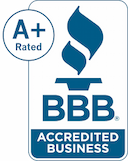Baltimore, MD Rehab Guide and Addiction Information
In 2020, there were 2,773 unintentional drug- and alcohol intoxication deaths in Maryland, a 16.6% increase from 2019.1 These deaths were a result of ingestion or exposure to substances like alcohol, heroin, fentanyl, prescription opioids, cocaine, benzodiazepine, methamphetamine, and phencyclidine (PCP).2 Many of these deaths were the result of the simultaneous use of multiple substances.3
Fortunately, for the residents of both Baltimore and the state of Maryland struggling with addiction, there are more than 200 drug rehab programs in Baltimore and many more options for addiction treatment in Baltimore and in the surrounding areas.4

Drug and Alcohol Rehab Near Baltimore
Addiction is a disease that affects people differently. When it comes to addiction treatment, the exact care plan should be unique to each person’s needs. For example, someone with a co-occurring mental health disorder or a serious medical condition will need different treatment than someone who does not struggle with these issues. The professionals at an addiction rehab facility should take all factors into account when assessing a patient coming into treatment and, as such, develop a treatment plan that will most benefit each individual and their circumstances.
There are many factors to consider when choosing a drug rehab near Baltimore, and location is one of them. While some may resist traveling to a different city or state to undergo treatment, it could actually prove very beneficial to a person seeking sobriety. Gaining some distance from the people and environment in which a person abused substances in the past can prove a successful strategy to achieving positive results in the future.
Type os Addiction Treatment Near Baltimore
There are a number of ways to treat drug and alcohol addiction at alcohol and drug rehabs in Baltimore and in the region. These include:
- Medical detox. For many, medical detox is the first step on the road to sobriety. Because withdrawal from various substances can be uncomfortable at best and life-threatening at worst, getting help to detox is crucial for many people.
- Inpatient treatment. Inpatient or residential treatment offers patients a sober and safe environment in which to live and work toward sobriety. Patients take part in individual and group therapy, drug education, recreational activities and sometimes alternative/holistic treatment approaches. Outpatient treatment. Outpatient treatment involves attending treatment during the day and living away from the facility. Outpatient programs vary in intensity depending on the patient’s treatment needs.
- Aftercare/sober living. Aftercare is an integral part of maintaining sobriety after treatment is complete. Aftercare can mean continuing outpatient therapy, involvement in an alumni program, or even moving into a sober living facility.
How To Choose a Rehab Facility
Choosing the right rehab facility requires careful consideration of a variety of factors. When choosing a treatment center, it’s important to consider the following:
- Insurance. If you plan to use your health insurance to pay for treatment, you’ll want to verify the facility is in-network with your provider. If the facility is out of network or if you don’t have insurance, check for financing options or alternative ways to pay for treatment.
- Amenities. A facility’s amenities and activities are important to consider when choosing a facility. Make sure you ask about amenities that are important to you. For example, you may be interested in private rooms, indoor and outdoor recreational areas, holistic therapies, or outdoor activities.
- Co-occurring disorder care. Substance use disorders very often co-occur with mental health disorders. Finding a facility that treats co-occurring disorders is crucial for those who struggle with them.
- Specialized treatment programs. For many people struggling with addiction being able to enter a treatment program that centers around their unique circumstances, like Veteran addiction recovery programs, can be incredibly beneficial.
- Location. It can be beneficial for a patient to attend treatment away from their current location to separate themselves from people and places that played a part in their substance abuse. Conversely, staying closer to home may benefit patients with a solid support network at home who are invested in their recovery.
How to Get to Sunrise House From Baltimore
Driving:
- Take I-83 North from E Lexington Street.
- Continue on I-83 to US-30 East. Take US-30 East to US-222 North/Allentown Pike in Ontelaunee Township.
- Take the US-222 North Exit from US-222 North.
- Get on the I-78 East/US-22 East in Upper Macungie Township from US-222 N and Schantz Road.
- Merge onto US-222 N/Allentown Pike.
- At the traffic circle take the 2nd exit and stay on US-222 N/Allentown Pike.
- At the traffic circle take the 2nd exit and stay on US-222 North.
- Continue straight on US-222.
- At the traffic circle take the 2nd exit and stay on US-222 North. (Pass by Arby’s on the right in 6.9 miles)
- At the traffic circle take the 3rd exit onto PA-863.
- Slight right toward Schantz Road and continue on Schantz road making another slight right.
- Use the left two lanes to turn onto PA-1o0 North.
- Use the right lane to merge onto 1-78 East/US-22 East via the ramp to Allentown.
- Follow US-22 E to Memorial Parkway in Phillipsburg.
- Take Belvedere Road, County Road 519 and Lawrence Road to Sunrise House.
Flying:
The closest major airport to Sunrise House is Newark Liberty International Airport.
Teteboro Airport also has flights from Baltimore and is only 48 miles from Sunrise House.

Worried You May Have a Substance Use Problem?

Drug and Alcohol Stats in Maryland
- 13.17% reported past-month illicit drug use.
- 59.74% used alcohol, and 27.74% drank to excess or binged alcohol.
- 2.69% sought treatment for illegal drug use and 5.21% sought treatment for alcohol use.
- Approximately 17.5% reported suffering from any type of mental illness.5
What Makes Us Unique
Industry Accredited, Exceptional Care
We’ve Supported Thousands With Their Recovery
American Addiction Centers (AAC) is committed to delivering original, truthful, accurate, unbiased, and medically current information. We strive to create content that is clear, concise, and easy to understand.
While we are unable to respond to your feedback directly, we'll use this information to improve our online help.


